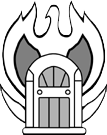More actions
Writing for Audio Theatre
Everyone will have a different approach to this question, and that’s as it should be. There are no unbreakable rules in writing for audio, just as there are none in any other kind of writing. That said, what I hope to provide here is a starting point for discussion.
Production references
- Yuri Rasovsky: The Well-Tempered Audio Dramatist
- Jerry Summers: The Producer-Engineer Interface
- IRDP: Radio Drama: The Production Process
Script format
ARTC has no single recommended script format. In fact, no two of our writers format a script the same way. As long as we (the producer, actors and tech crew) can tell what the writer meant, it’s acceptable.
In the ideal world, though, every script would contain:
- A title page, containing:
- Title, author, author contact information
- DATE OF DRAFT and identifier for script revision
- A cast list (this can be on the title page)
- A brief description of each character (optional, but very helpful)
- A list of scene locales (optional, but helpful for building background sounds)
- PAGE HEADERS, containing
- Title, Script revision identifier, and PAGE NUMBERS (“1 of 12”)
Some nigh-universal guidelines:
- Use COURIER 12-point.
- DON’T allow a character’s dialog to be separated by a page break.
- DON’T hyphenate words at the end of a line.
- DON’T emphasize words with bold or italics. In fact, don’t emphasize words at all unless the sentence is unintelligible if you don’t. If you must do it, underline.
Other resources:
- Tony Palermo: Script Template for MS Word (hosted at artc.org/internal)
- http://www.simplyscripts.com/WR_format.html
- http://www.oscars.org/nicholl/format_a.txt
- http://www.humboldt.edu/~jmf2/floss/rt.script.example.html
